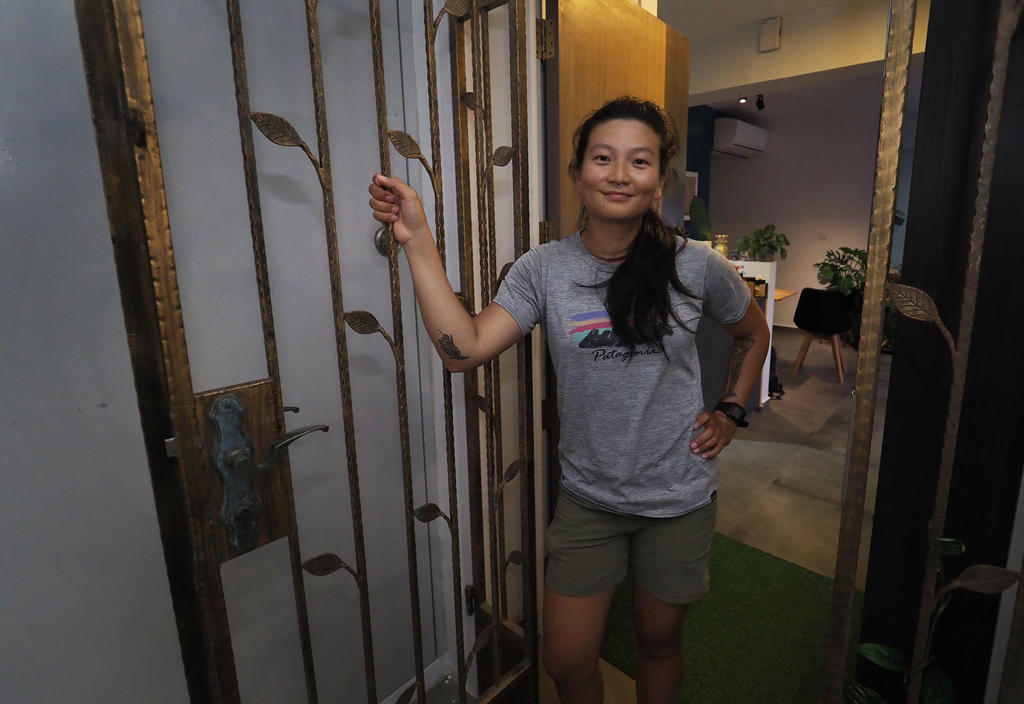Click here to see the original story.
SINGAPORE — Since she was five, Ms Kelly Kanaga, 30, and her family moved from one place to another for a roof over their heads before they got a rental flat of their own a year ago.
When she heard about the plight of Malaysian workers sleeping rough near Kranji MRT Station after a nationwide lockdown in their country in March, she did not think twice about opening her home to strangers even though it was already cramped.
Ms Kanaga was among many Singaporeans who offered their homes for free as temporary shelters.
“For many years, after my family lost our home, we would stay at people’s homes, so I know how it feels to be in their position,” said the full-time content creator, who lives with her mother and two siblings in a three-room Housing and Development Board flat in Marsiling.
TODAY reported on the Malaysian workers sleeping rough near Kranji MRT Station after the Malaysian border closure — which took effect on March 18 to tackle the Covid-19 outbreak — left them scrambling for shelter. These workers usually commute daily.
The report garnered more than 116,000 shares and an outpouring of support from Singaporeans, who offered to house Malaysian workers in their homes, or provide them with food and blankets.
Ms Kanaga said she took in two workers who work as cleaners at her sister’s office, providing them with mattresses in her living room for two months.
One of them, Ms Kasturi Karpanan, 48, was at her wits’ end trying to find a place before the offer from Ms Kanaga and her sister.
The mother of four children aged 13 to 23 was away from her family in Kulai, Johor, for the first time, so she could keep working in Singapore.
Alone here, Ms Karpanan said she never expected such hospitality from Ms Kanaga’s family. They went grocery shopping occasionally and she even appeared in an episode of a show Ms Kanaga has on YouTube.
“They spent a lot of money on me over the two months. They bought me a pillow and clothes, and refused to take a single cent.
“I didn’t feel like I was living in a stranger’s house at all… It was like living with family,” she said.
After a tip-off by activist Gilbert Goh, TODAY went to Kranji MRT Station on March 19 at about 9.30pm.
The first sign of the homeless Malaysians was warehouse storekeeper Armel Sharil, who was leaning on the station’s metal gates, his face buried between his legs.
Mr Armel had only his wallet, a phone with no internet access, a portable charger, a small tub of hair wax and mouthwash with him. He had no time to pack more belongings before the lockdown.
He was hesitant to share his story at first, but when he did, many followed suit as they wanted their stories told.
TODAY’s reporter and photographer stayed at the station till almost 2am approaching worker after worker, although some refused to talk and many were already snoring.
IMPACT ON COMMUNITY
The Ministry of Manpower said 14 workers were picked up from the station later in the night and taken to a temporary relief centre in Jurong East managed by the Ministry of Social and Family Development.
A check at the station by TODAY the next evening found no Malaysian workers looking to spend the night there.
Instead, this reporter was met by groups of volunteers carrying boxes of sleeping bags, bread and blankets. Officers from the High Commission of Malaysia and the Malaysian Association in Singapore also turned up at the station after reading TODAY’s report.
Within a week, property portal 99.co started an initiative matching homeowners to workers in need.
To date, 99.co has worked with 40 homeowners and residential firm MetroResidences to match workers with temporary housing. Nine workers have been matched.
Mr Darius Cheng, its chief executive officer, told TODAY: “99.co salutes Malaysians working in Singapore for their sacrifice and dedication in earning a living for their loved ones back home, especially in challenging conditions imposed by the lockdown.”
One of its sign-ups was Ms Michelle Loi, 48, who had a vacant flat she wanted to rent out.
Instead, she used it to house two workers for free — one stayed a month before returning to Malaysia and the other moved in with his colleague after two months.
Ms Loi is still in touch with one of them, who kept her updated when he changed his job and moved into his new accommodation.
Bonds flourished between homeowners and the workers they housed.
For outdoor instructor Ruby Tan, who housed two workers for two months, the workers made co-living easy, as they were respectful of the space and kept it clean.
“I’m happy to be able to help, and at the same time, make new friends. It was bittersweet when they left,” said the 32-year-old, who lives in a three-room flat with her husband.
“I felt like we hadn’t built enough of a connection and they were gone.”
The workers left in May when they found a place to stay.
Similarly, human resource executive Joy Choo, 32, who opened her home to a worker, said the pair keeps in touch.
“She still has a plush toy in the room… She told me that she would come back for it before she returns to Malaysia,” said Ms Choo.
She recalled having to make adjustments when sharing her home with the Muslim worker, such as ordering in Halal food.
TODAY did not speak to the workers involved, as they did not wish their employers to know of their circumstances.
Ms Kanaga said she would open up her home to anyone who needs a place to stay, no matter the circumstances.
Ms Karpanan said she tries to visit Ms Kanaga’s family whenever she has time as she misses them.
“When I am alone, I think about the things we did together or I will watch Kelly’s shows (on YouTube).”
This article was written in conjunction with World News Day, which raises awareness of journalism’s role in helping people to make sense of and improve the world around them. The campaign, on Sept 28, will showcase the best work from newsrooms around the globe and how they have brought about positive change in the community.




